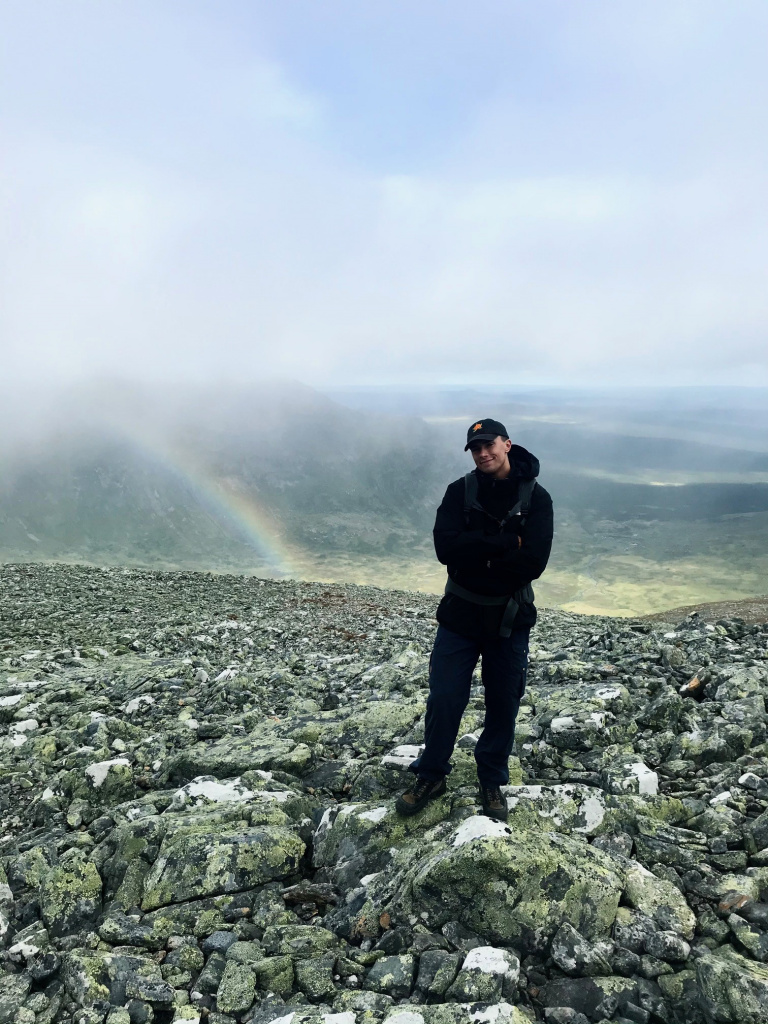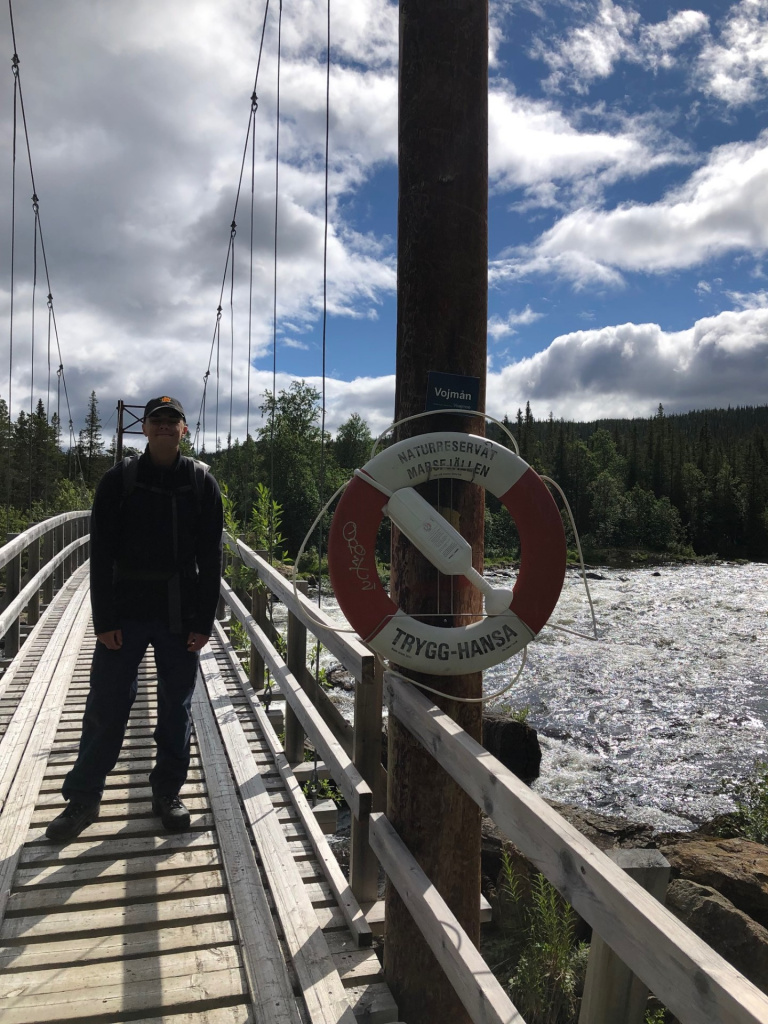30Under30 Honouree: Hugo Englund

Great to hear from our 2023 Global 30-under30 honouree, Hugo Englund, a forward-thinking Data Scientist in marketing research, dedicated to data-driven excellence, innovation, and fostering the next generation of young talents within the field.
How did you get into the industry, and take us through how you got to this point?
My journey into the marketing research industry has been an exciting blend of data-driven passion and a thirst for knowledge. As a young, tech-savvy Data Scientist, my entry into this field was through a fascination with the power of data and its potential to transform marketing strategies.
I began my journey by acquiring a strong foundation in data science and statistics, which I believe is essential for anyone entering this industry. Armed with this knowledge, I delved into marketing research, using my data expertise to uncover actionable insights. I initially started as a Data Scientist at Nepa, a Swedish market research firm, where I learned to harness data for decision-making and honed my skills in statistical modelling.

My path to this point has been characterised by continuous learning. I’ve consistently pursued opportunities for professional development, attending conferences and webinars, and staying updated with the latest advancements in the field. Moreover, I’ve actively sought mentorship from seasoned professionals to gain insights into the industry’s intricacies.
My journey has been fueled by my belief in data-informed modeling, where the synergy of data and prior knowledge forms the bedrock of excellent models. Over time, I’ve contributed to projects that have directly impacted marketing strategies, and I’ve seen firsthand how applied research can drive change and innovation in marketing science.
In recent years, I’ve embraced machine learning as a natural progression to cope with the increasing granularity of marketing data. Machine learning enables me and my team to extract more granular, actionable insights from the data, ultimately helping businesses make data-informed decisions. This journey has brought me to my current role, where I continue to use my skills to drive positive change in the marketing research industry.

What are you most proud of from your career so far?
One of the achievements I’m most proud of in my marketing research career is my ability to bridge the gap between data science and marketing. I’ve successfully applied my skills to turn complex data into actionable insights that have directly impacted marketing strategies and driven positive results for the organizations I’ve worked with.
I’m particularly proud of instances where I’ve played a pivotal role in introducing machine learning techniques to enhance the granularity of marketing data analysis. By leveraging advanced algorithms, I’ve empowered businesses to make more informed decisions and stay competitive in the rapidly evolving marketing landscape.
Moreover, I take pride in my commitment to knowledge sharing to my team and colleagues, students interested in the field, or basically anyone with a foot into marketing. I believe that helping the next generation of researchers develop their skills and understanding of data-driven marketing is crucial for the growth and innovation of our industry.
Overall, my journey in marketing research has been defined by the application of data science, a dedication to driving change and innovation, and the successful integration of machine learning into marketing strategies to achieve exceptional results.

What two things should junior researchers focus on as they progress in their careers?
For junior researchers looking to progress in their marketing research careers, there are two crucial areas to focus on:
- Strong Foundation in Data Science and Statistics: Building a solid foundation in data science and statistics is paramount. Understanding the principles of data analysis, statistical methods, and data manipulation is essential for conducting rigorous research. Junior researchers should invest time in learning and mastering these foundational skills, as they will be the basis for developing advanced data models and making informed decisions.
- Communication and Storytelling Skills: In addition to technical skills, junior researchers should hone their ability to communicate findings effectively. Data-driven insights are valuable only if they can be understood and acted upon by non-technical stakeholders. Being able to tell a compelling data-driven story is a valuable skill. This includes creating clear and visually engaging reports, presentations, and data visualizations that convey the insights derived from the research.
By focusing on these two aspects, junior researchers can develop a strong technical foundation and the ability to translate complex data into actionable recommendations, making them invaluable assets to their organizations.

What message do you have for anyone considering a career in our sector?
To anyone considering a career in marketing research, I would say this: the field is a dynamic and rewarding one that offers the opportunity to blend the power of data with the art of understanding human behavior. Here are some key messages:
- Embrace the Data: Marketing research is all about understanding customer behavior and preferences through data. If you have a passion for data and analytics, this field provides an exciting playground to apply your skills and make a real impact.
- Be Curious: Curiosity is a key trait in marketing research. Ask questions, dig deep into data, and never stop exploring. Curiosity will lead you to discover insights that can drive innovation and change.
- Learn Continuously: The field of marketing research is constantly evolving. Stay up-to-date with the latest research methodologies and data analysis techniques. Continuous learning is essential for success.
- Combine Science and Art: While data and statistics are crucial, don’t forget that marketing research also involves understanding human behavior, psychology, and the art of storytelling. Balancing the analytical with the creative is a powerful combination.
- Mentorship Matters: Seek out mentors who can guide you through the complexities of the field. Learning from experienced professionals can accelerate your career growth.
- Impact and Innovation: Remember that your work can directly influence business decisions and drive innovation in marketing. Your insights can shape the strategies that companies use to connect with their customers.
- Diversity and Inclusion: Embrace and advocate for diversity and inclusion in the industry. Diverse perspectives lead to richer insights and better decision-making.
Marketing research is an exciting field with the potential to shape the way businesses engage with their audiences. It’s a field that rewards those who are passionate about data, eager to learn, and dedicated to making a real impact on the world of marketing.

Do you have any advice for our sector as a whole?
As a passionate Data Scientist within the marketing research sector, I have some advice for the industry as a whole:
- Embrace Technological Advancements: The marketing research industry should wholeheartedly embrace technological advancements, particularly in the realm of machine learning and artificial intelligence. These technologies can unlock deeper insights from data and improve the efficiency of research processes.
- Prioritize Data Security and Ethics: In the age of big data, it’s crucial to prioritize data security and ethical data usage. Adhering to strict data privacy regulations and maintaining the trust of participants and clients should be a top priority.
- Promote Collaboration: The industry should encourage collaboration between data scientists, marketers, and business strategists. A multidisciplinary approach can lead to more holistic and actionable insights.
- Invest in Education and Training: Invest in training programs and educational initiatives to ensure that professionals in the industry are equipped with the latest skills and knowledge. This will foster a culture of continuous learning.
- Advocate for Transparency: Transparency in research methodologies and reporting is essential. The sector should promote clear and honest reporting of findings to build trust with clients and stakeholders.
- Think Beyond Data: While data is at the heart of marketing research, remember that it’s a means to an end – understanding human behavior and driving business success. Encourage researchers to connect data insights to real-world impact.
- Support Emerging Talent: Nurture and support the next generation of researchers. Encourage diversity in the sector and create mentorship programs to help young researchers thrive.
- Stay Agile and Adaptable: The marketing landscape is ever-evolving. Being agile and adaptable to changing consumer behavior and emerging technologies is crucial for success.
By following these recommendations, the marketing research sector can continue to evolve and thrive, delivering valuable insights and driving innovation in the ever-changing world of marketing.

Do you have anyone who has helped your career so far that you’d like to acknowledge and say thanks or give a shout out to?
Absolutely, there are individuals who have played instrumental roles in my career, and I’d like to express my gratitude and give them a shout out.
First and foremost, I’d like to thank my colleagues, Jessika Ödling and Thomas Berthelsen, for their guidance and wisdom. Their experience and willingness to share their knowledge have been invaluable in shaping my understanding of the marketing research field. Their support has helped me navigate challenges and make informed career decisions.
Additionally, I want to express my appreciation to the entire marketing research community. The willingness of professionals in the industry to share insights and collaborate has enriched my understanding and driven my career forward.
In conclusion, the journey in the marketing research sector is not a solitary one, and I’m grateful to all those who have been part of my growth and success. Their support and mentorship have made a significant impact on my career.